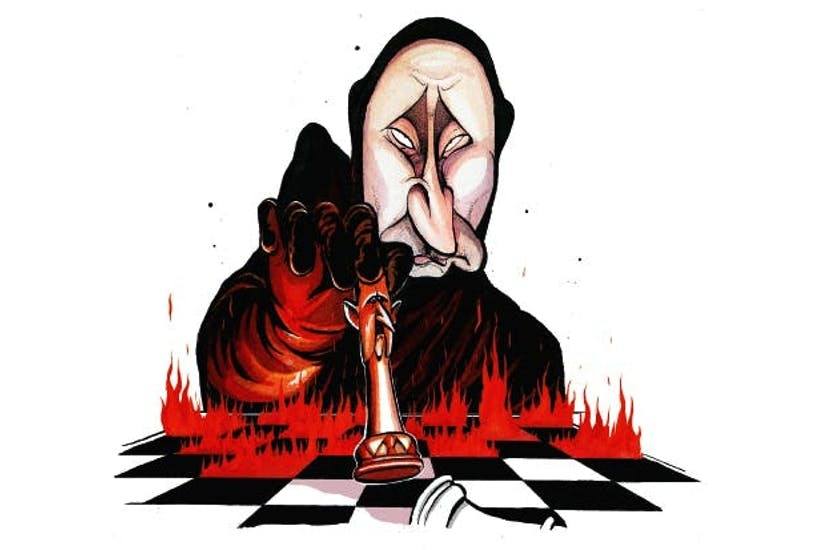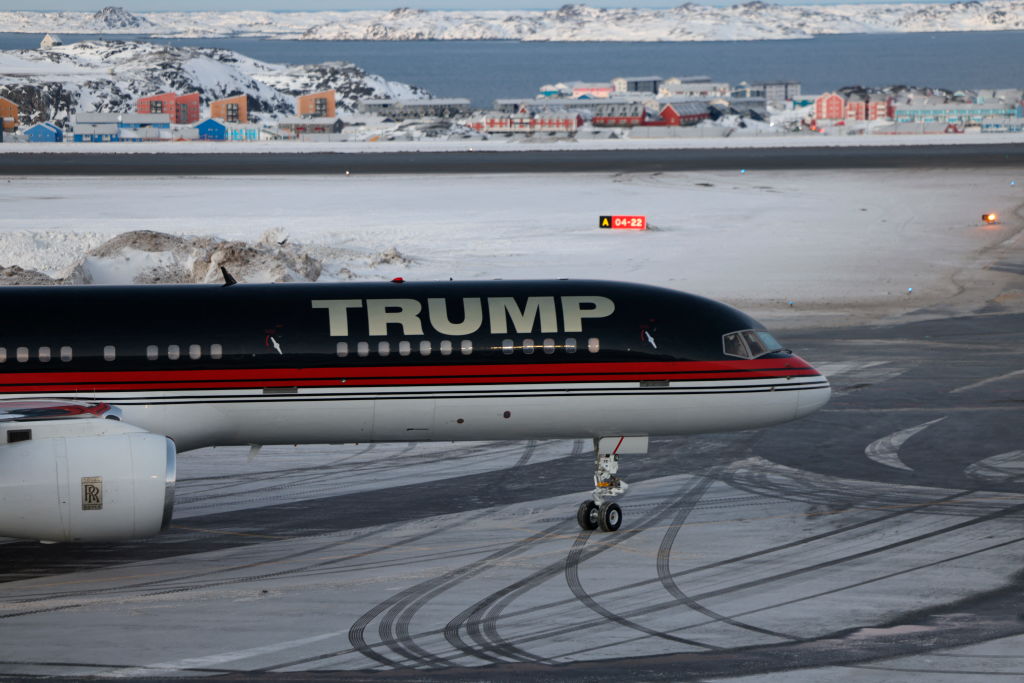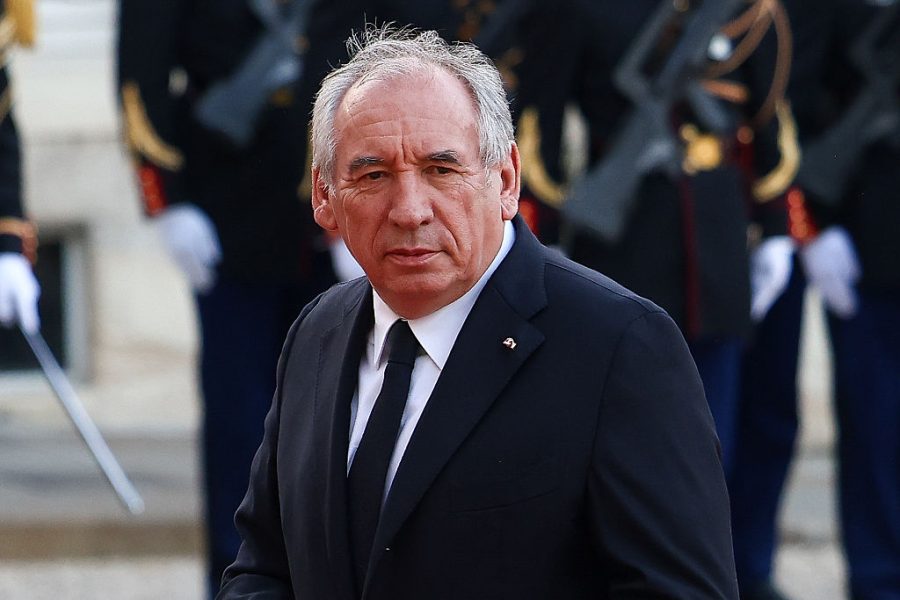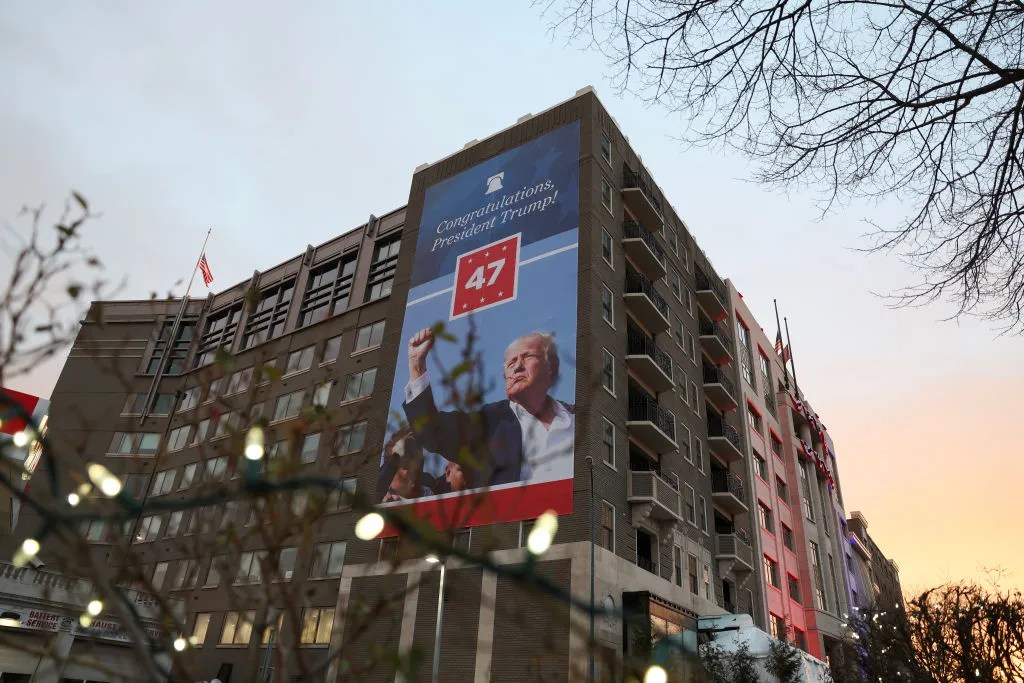‘The whole of the Balkans,’ Otto von Bismarck said, ‘is not worth the bones of a single Pomeranian grenadier.’ He was right, until he was wrong. Times changed, and so did the map. In 1914, with Bismarck gone and no one to restrain the Kaiser, terrorism in the Balkans sparked a world war.
How much of Iraq was worth the bones of the thousands of Americans who died in Iraq? Only in the Kurdish areas of northern Iraq did the United States turn an enemy state into an ally. How much of Syria is worth the bones of a single US Marine? None of it, because time and the map have changed. The spark of terrorism in Eastern Ghouta, the grandstanding of Western leaders, and the lobbing of missiles at Syria as a moral gesture, will not undo the victory of Assad, Iran and Russia in Syria. They might, however, draw us into a regional war on the worst of terms and at the worst of times.
The United States, and Britain and France too, must accept that they missed their chance in August 2013, after Assad’s planes dropped chemical weapons on the eastern suburbs of Damascus. That fiasco—the French arming their planes on the runways while the British parliament voted against intervention, Obama talking about red lines while begging Putin to let the US withdraw from the region—proved to Assad, Putin and Rouhani that they could do whatever they wanted in Syria. Trump’s failure to follow the missile strikes of April 2017 with a coherent regional policy confirmed that analysis.
The Sunni-Shia civil war is about to explode. If the Western powers wish to remain powers, they must identify interests, not friends. They must identify defensible lines, instead of blundering into failed states like Syria. They must understand that times and the map have changed, and formulate a strategy. Instead, we are closer to an exchange of fire with Russia than at any time since the Cuban Missile Crisis.
If our immediate objective is the defeat of Isis, then we should let Assad, the Iranians, the Russians and the Syrian Kurds get on with it. If our medium-term objective is the deposition of Assad and our long-term goal is the weakening of Iranian influence between the Persian Gulf and the Mediterranean, then we should reward the Syrian Kurds. They have been crucial in the defeat of Isis in Syria, and they are the only non-Islamist allies we have in Syria. Instead, we are abandoning them to Turkey.
Policy abhors a vacuum. In the absence of a plan from this frivolous American presidency, the leaders of Britain and France are setting the course. France created Syria and Lebanon in the aftermath of the First World War. It has lost influence in both of these states to the rise of the Shiites, to Hezbollah and Iran. Britain is similarly alarmed by the Shiite threat to the Gulf states and Jordan. Should the United States allow itself to be dragged into war by Emmanuel Macron, a would-be Napoleon whose uniform is the too-tight suit of a PR man, and Theresa May, a third-rate Thatcher impersonator who cannot control her own Cabinet?
This is not the time for humanitarian gestures. It is shaming to say so, because humanitarianism is integral to the Western liberal tradition, and because by saying so, we appear to agree with the local enemies of Western liberalism—the puerile isolationists and self-loathing leftists. But we must be realistic, because we have allowed the situation to slide to the edge of a cliff.
What, for instance, is our policy should missile strikes on Syria kill Iranian or Russian soldiers? The Iranians and the Russians aren’t stupid; indeed, compared to our foundering in the region, they’re clearly quite clever. If their personnel are killed, they are unlikely to retaliate against the United States. They will retaliate against British or French ships, or against Israel, and probably with the deniability that comes with using Hezbollah as the instrument of retaliation.
The United States will then face a choice: either back its allies, activate NATO’s Article 5, and go to war; or back down and suffer another self-inflicted strategic humiliation.
The problem is, the United States will lose whatever it does. If it backs down, it emboldens Iran and raises the chances of war further down the line. If it stands up, it invites Russia to call its bluff, by demonstrating the weakness of Britain and France. And weak they are. We are told that Russia has only one aircraft carrier. That’s one more than Britain has. The Libya adventure of 2011 proves that Britain and France cannot walk the talk without American support.
Putin is testing the post-1945 security architecture, in Syria as in Ukraine. Turkey is the Cold War anchor of NATO’s southeastern flank, and it has the second-largest NATO army. But Turkey under Erdogan is pulling away from NATO and Europe. Putin and the Iranians are happy to help.
If Turkey is in NATO but not of it, Israel is of the West but not in NATO. Syria, the weak state in between Turkey and Israel, is where Putin the judoka is applying the pressure. Flipping Turkey out of NATO would be a big win for Russia. It would also pull Israel away from the United States, by cementing Russia’s status at the only credible outside power.
In 1914, the gunpowder trail was laid by the weakening empires of Austro-Hungary and Russia, and lit by the ambition of the rising empire of Germany. The trail led to the mutual defense treaties that bound the status quo powers of Britain, France and Russia. The resulting explosion detonated that security architecture, and led to what historians now call the European Civil War. Its outcomes included the arrival of the United States as a global military power.
Today, the ambition of the rising empire of Iran, abetted by the weakened empire of Russia, meets the status quo powers of Britain, France, Israel, Saudi Arabia and the United States. If we play into Putin’s hands by striking Syria, we invite him to destroy the post-1945 security architecture. The outcomes of that may well accelerate the arrival of China as a global military power, and at a rate we will not be able to manage.
The map is changing, the Middle East is about to blow, and the West has no regional strategy. This is not the time to strike Syria. That is a bitter reality to acknowledge. But far more bitter lessons are in store if we make reckless gestures, only to find ourselves unable to back them up.

























